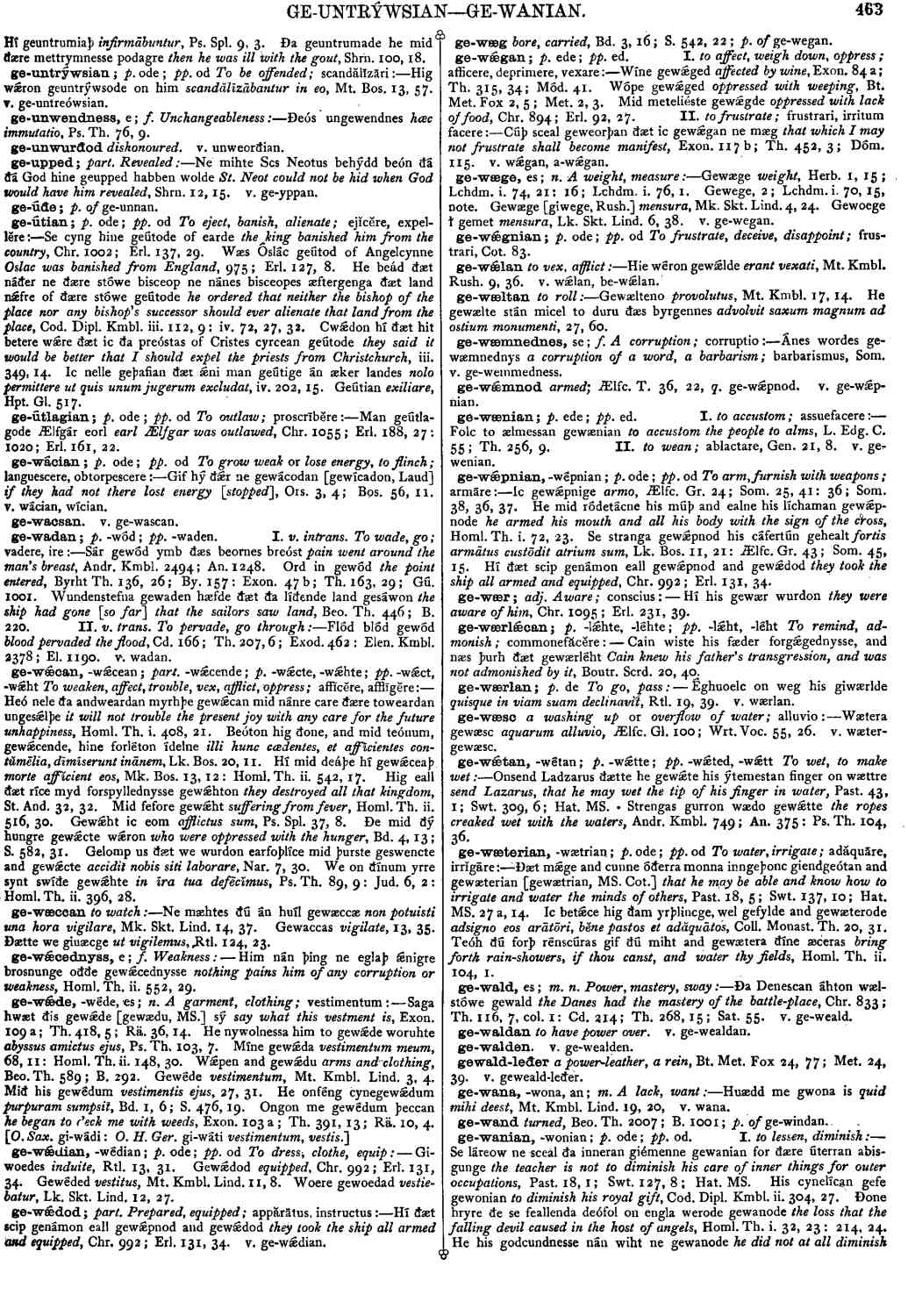ge-wǽcan
- verb [ weak ]
-
Heó nele ða andweardan myrhþe gewǽcan mid nánre care ðære toweardan ungesǽlþe
it will not trouble the present joy with any care for the future unhappiness,
- Homl. Th. i. 408, 21 .
-
Beóton hig ðone, and mid teónum, gewǽcende, hine forléton ídelne
illi hunc cædentes, et afficientes contŭmēlia, dīmīserunt inānem,
- Lk. Bos. 20, 11 .
-
Hí mid deáþe hí gewǽceaþ
morte affĭcient eos,
- Mk. Bos. 13, 12 :
- Homl. Th. ii. 542, 17 .
-
Hig eall ðæt ríce myd forspyllednysse gewǽhton
they destroyed all that kingdom,
- St. And. 32, 32 .
-
Mid fefore gewǽht
suffering from fever,
- Homl. Th. ii. 516, 30 .
-
Gewǽht ic eom
afflictus sum,
- Ps. Spl. 37, 8 .
-
Ðe mid ðý hungre gewǽcte wǽron
who were oppressed with the hunger,
- Bd. 4, 13 ;
- S. 582, 31 .
-
Gelomp us ðæt we wurdon earfoþlíce mid þurste geswencte and gewǽcte
accidit nobis siti laborare,
- Nar. 7, 30 .
-
We on ðínum yrre synt swíðe gewǽhte
in īra tua defēcĭmus,
- Ps. Th. 89, 9 :
- Jud. 6, 2 :
- Homl. Th. ii. 396, 28 .
Bosworth, Joseph. “ge-wǽcan.” In An Anglo-Saxon Dictionary Online, edited by Thomas Northcote Toller, Christ Sean, and Ondřej Tichy. Prague: Faculty of Arts, Charles University, 2014. https://bosworthtoller.com/16703.
Checked: 1